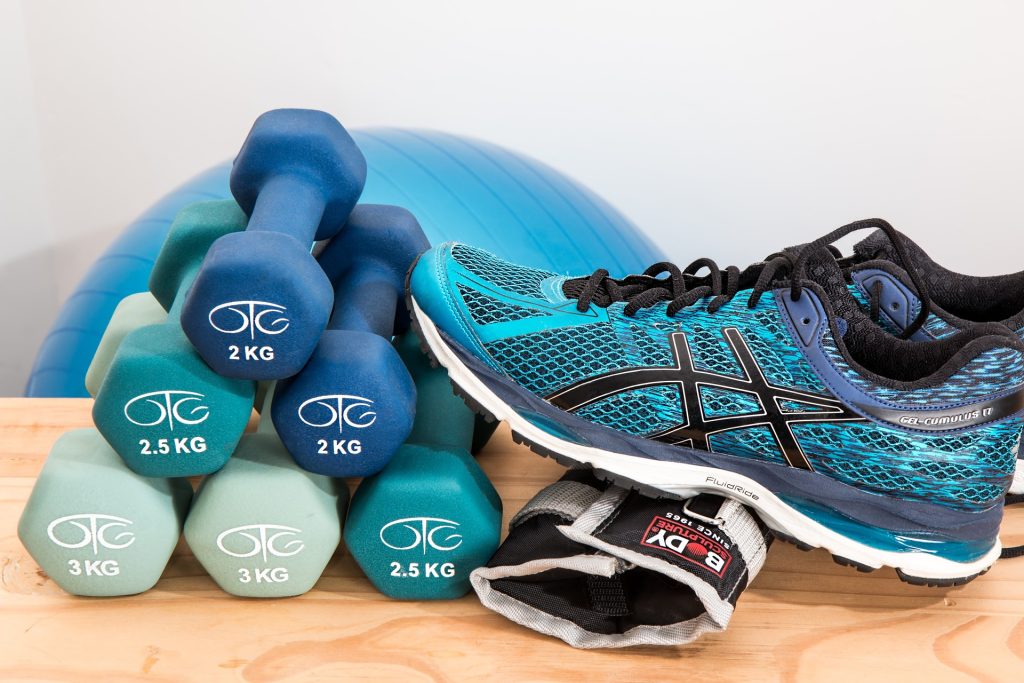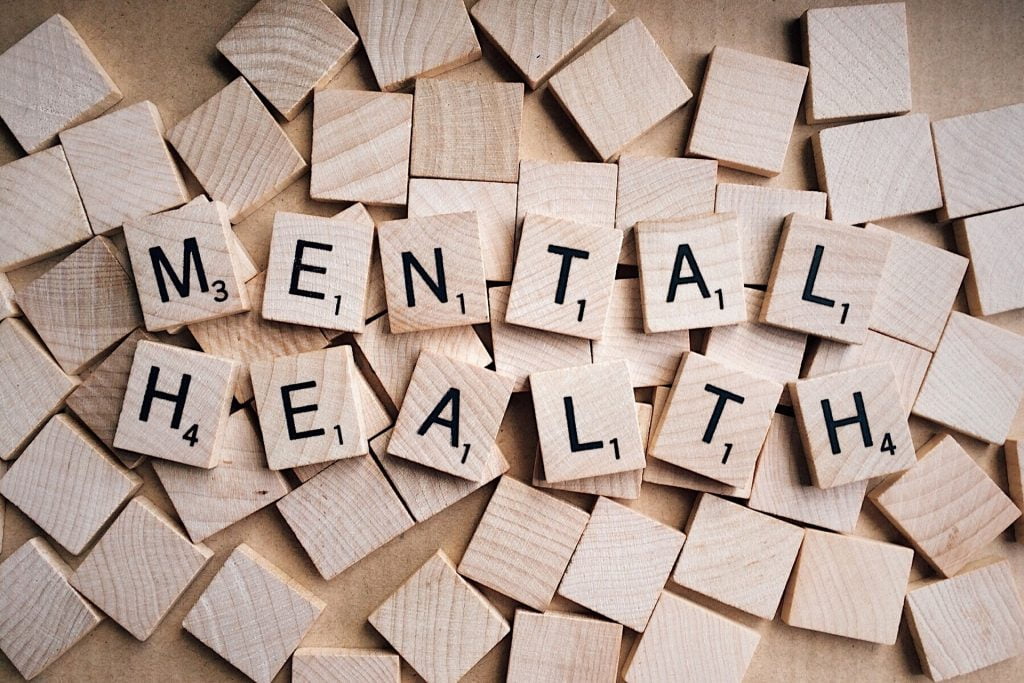Your health is your most valuable asset, yet it can be all too easy to neglect it in the hustle and bustle of daily life. Whether you’re juggling work, family, or other obligations, it can feel like there’s just not enough time in the day to prioritize your health. However, taking steps to improve your health doesn’t have to be a daunting task. In fact, by making a few small changes to your daily routine, you can start to feel better both physically and mentally. In this blog post, we’ll be sharing the top 10 health tips for a better life, so you can start prioritizing your health today. From exercise and diet to stress management and mental health, we’ll cover all the essentials you need to know to live your healthiest, happiest life.
Tip 1: Make Exercise a Priority
In today’s fast-paced world, it’s easy to neglect our physical health, and exercise often falls to the bottom of our to-do list. However, regular physical activity is crucial for maintaining good health and reducing the risk of chronic diseases. Making exercise a priority in our daily routine can have immense benefits for our overall well-being. We will discuss some of the importance of regular physical activity, types of exercise to consider, and how to fit exercise into your busy schedule.
Importance of Regular Physical Activity
Regular physical activity has numerous benefits for our physical and mental health. Engaging in physical activity helps to improve cardiovascular health, maintain a healthy weight, and reduce the risk of chronic diseases such as diabetes and hypertension. Exercise can also improve our mental health by reducing symptoms of anxiety and depression, improving our mood and self-esteem, and enhancing cognitive function.
Types of Exercise to Consider
There are various types of exercise that you can consider to incorporate into your daily routine. These include:
- Aerobic exercise: Aerobic exercise, such as running, swimming, or cycling, can help to improve cardiovascular health and increase endurance.
- Resistance training: Resistance training, such as weightlifting, can help to build muscle mass and increase strength.
- Yoga and stretching: Yoga and stretching can improve flexibility, balance, and relaxation.
- High-Intensity Interval Training (HIIT): HIIT workouts involve short bursts of intense exercise, followed by periods of rest, and can be a great way to get a full-body workout in a short amount of time.
How to Fit Exercise into Your Busy Schedule
It can be challenging to find the time to exercise when our schedules are packed with work, family, and other commitments. However, there are some strategies you can use to make exercise a priority in your daily routine:
- Schedule exercise into your day: Treat exercise like any other appointment by scheduling it into your day. Set aside a specific time each day for physical activity, and stick to it as much as possible.
- Find an exercise buddy: Exercising with a friend or family member can help to keep you motivated and accountable.
- Incorporate exercise into your daily routine: Look for ways to incorporate physical activity into your daily routine, such as taking the stairs instead of the elevator, or walking or cycling to work.
- Set realistic goals: Start with small, achievable goals and gradually increase the intensity and duration of your workouts over time.

Tip 2: Eat a Balanced Diet
Consuming a variety of nutrient-rich foods can help us meet our daily requirements for essential vitamins and minerals, support healthy body functions, and reduce the risk of chronic diseases.
Importance of a Healthy Diet
Eating a healthy diet is crucial for our physical and mental health. A balanced diet can help us maintain a healthy weight, reduce the risk of chronic diseases such as diabetes and heart disease, and improve our mood and energy levels. Consuming a variety of nutrient-dense foods such as fruits, vegetables, whole grains, lean proteins, and healthy fats can help us meet our daily nutrient requirements and support optimal body function.
Foods to Include and Avoid
To achieve a balanced diet, it’s important to include a variety of nutrient-dense foods and limit consumption of foods high in added sugars, sodium, and unhealthy fats. Some foods to include in your diet include:
- Fruits and vegetables: Aim to consume a variety of colorful fruits and vegetables to ensure you’re getting a range of essential vitamins and minerals.
- Whole grains: Incorporate whole grains such as brown rice, quinoa, and whole-wheat bread into your diet to increase fiber intake.
- Lean proteins: Choose lean proteins such as chicken, fish, tofu, and legumes to support muscle growth and repair.
- Healthy fats: Include healthy fats such as avocado, nuts, seeds, and olive oil to support heart health and brain function.
Some foods to limit or avoid in your diet include:
- Added sugars: Limit consumption of foods high in added sugars such as soda, candy, and baked goods.
- Sodium: Limit intake of foods high in sodium such as processed foods, canned soups, and fast food.
- Unhealthy fats: Limit consumption of saturated and trans fats found in fried foods, processed snacks, and fatty meats.
Tips for Meal Planning and Preparation
Meal planning and preparation can help you stay on track with your healthy eating goals and save time and money in the process. Here are some tips to help you get started:
- Plan your meals: Take some time each week to plan your meals for the upcoming week. This can help you make healthier choices and reduce the temptation to eat out or grab unhealthy snacks.
- Prepare meals in advance: Consider preparing some meals in advance to save time during the week. You can cook large batches of meals and store them in the fridge or freezer for easy reheating.
- Make healthy swaps: Look for ways to make healthier swaps in your meals, such as swapping white rice for brown rice or using Greek yogurt in place of sour cream.
- Keep healthy snacks on hand: Stock your pantry and fridge with healthy snacks such as fresh fruit, vegetables, and nuts to help you stay on track with your healthy eating goals.

Tip 3: Get Enough Sleep
Getting enough sleep is an essential part of maintaining good health and wellbeing. Quality sleep plays a vital role in supporting healthy brain function, reducing the risk of chronic diseases, and promoting physical and mental wellbeing. We will discuss the importance of quality sleep, tips for getting a good night’s sleep, and the effects of lack of sleep on health.
Importance of Quality Sleep
Quality sleep is important for both physical and mental health. During sleep, our bodies work to repair and rejuvenate themselves, helping us to wake up feeling refreshed and energized. Additionally, sleep is crucial for supporting healthy brain function, including memory consolidation and problem-solving skills. Poor sleep quality has been linked to a variety of health issues, including obesity, heart disease, and depression.
Tips for Getting a Good Night’s Sleep
If you’re having trouble getting enough sleep, there are several things you can do to improve sleep quality. Here are some tips to help you get a good night’s sleep:
- Stick to a sleep schedule: Try to go to bed and wake up at the same time every day, even on weekends. This can help regulate your body’s internal clock, making it easier to fall asleep at night.
- Create a relaxing sleep environment: Keep your bedroom cool, quiet, and dark to create a relaxing sleep environment. Consider using blackout curtains or a white noise machine to block out any distractions.
- Limit screen time before bed: The blue light emitted by electronic devices can interfere with sleep. Try to avoid using phones, tablets, or computers for at least an hour before bed.
- Avoid caffeine and alcohol: Caffeine and alcohol can disrupt sleep. Avoid consuming these substances for several hours before bedtime.
Effects of Lack of Sleep on Health
Chronic sleep deprivation has been linked to a variety of negative health outcomes. Here are some of the potential effects of a lack of sleep on health:
- Increased risk of chronic diseases: Lack of sleep has been linked to an increased risk of chronic diseases such as diabetes, heart disease, and obesity.
- Impaired cognitive function: Poor sleep quality can impair cognitive function, including memory, attention, and decision-making skills.
- Mood disturbances: Chronic sleep deprivation has been linked to an increased risk of depression, anxiety, and irritability.
- Impaired immune function: Sleep plays an important role in supporting a healthy immune system. Chronic sleep deprivation has been linked to impaired immune function, increasing the risk of illness and infection.

Tip 4: Practice Stress Management Techniques
Stress is a common and natural part of life, but when it becomes chronic or overwhelming, it can have negative effects on both our physical and mental health. That’s why practicing stress management techniques is so important.
Importance of Stress Management
Stress can have many negative effects on our bodies and minds, including increased anxiety, high blood pressure, and decreased immune function. By managing stress levels, we can reduce these negative effects and improve our overall health and wellbeing. Additionally, practicing stress management techniques can help us to feel more relaxed, focused, and in control.
Techniques to Reduce Stress
There are many different techniques that can be effective in reducing stress. Here are a few options to consider:
- Exercise: Regular exercise has been shown to reduce stress levels and improve mood. Whether it’s a brisk walk, a yoga class, or a weightlifting session, finding a physical activity that you enjoy can be a great way to manage stress.
- Deep breathing: Deep breathing exercises, such as diaphragmatic breathing, can help to calm the nervous system and reduce stress levels. Try taking slow, deep breaths for several minutes whenever you feel stressed or anxious.
- Time management: Feeling overwhelmed and stressed can often be a result of having too much to do and not enough time. By managing your time more effectively and prioritizing tasks, you can reduce stress levels and feel more in control.
Mindfulness and Meditation Practices
In addition to the above techniques, mindfulness and meditation practices can be incredibly effective in reducing stress and improving overall wellbeing. Mindfulness involves being present in the moment, fully aware of your thoughts and feelings without judgment. Meditation involves focusing your attention on a particular object or activity, such as your breath or a mantra, to help quiet the mind and reduce stress levels.
Benefits of Mindfulness and Meditation Practices:
Research has shown that mindfulness and meditation practices can have a variety of positive effects on our physical and mental health. Here are some potential benefits:
- Reduced stress and anxiety: Mindfulness and meditation practices have been shown to reduce stress and anxiety levels, improving overall wellbeing.
- Improved sleep: Practicing mindfulness and meditation can help to improve sleep quality and reduce insomnia.
- Increased self-awareness: By becoming more aware of your thoughts and feelings, mindfulness and meditation practices can help to increase self-awareness and improve emotional regulation.

Tip 5: Stay Hydrated
Water is necessary for our body’s proper functioning, and dehydration can cause a host of problems, from dry skin to more severe issues like heat stroke. In this article, we’ll discuss the importance of hydration, how much water you should be drinking each day, and other sources of hydration besides water.
Importance of Hydration
Water makes up a significant portion of our bodies, accounting for about 60% of our total body weight. Our organs, cells, and tissues rely on water to function correctly. Water helps to regulate our body temperature, transport nutrients and oxygen to our cells, and remove waste products. Additionally, it aids in digestion, lubricates our joints, and supports healthy skin.
Dehydration, on the other hand, can lead to fatigue, headaches, constipation, dry mouth, and even more severe health issues like kidney stones and urinary tract infections. Athletes, in particular, need to stay hydrated to maintain their performance levels and prevent heat exhaustion.
How Much Water to Drink Daily
The amount of water you need to drink daily varies based on factors like your age, gender, weight, and activity level. As a general rule of thumb, most adults need to drink at least 8 cups (64 ounces) of water a day. However, some people may need more or less water depending on their unique needs.
One way to determine how much water you need is to divide your body weight (in pounds) by two. The resulting number is the number of ounces of water you should drink each day. For example, if you weigh 150 pounds, you should aim to drink 75 ounces of water daily.
Other Sources of Hydration Besides Water
While water is the most efficient way to stay hydrated, there are other sources of hydration besides plain water. Many fruits and vegetables are high in water content, making them an excellent choice for staying hydrated. For example, cucumbers, lettuce, tomatoes, and watermelon all have a high water content and can help you meet your daily hydration needs.
Other sources of hydration include sports drinks, coconut water, and herbal teas. However, it’s essential to read the labels carefully and avoid drinks that are high in added sugars or sodium.
Staying hydrated is critical for maintaining optimal health and well-being. Make sure to drink at least 8 cups (64 ounces) of water daily and eat hydrating foods like fruits and vegetables. Consider incorporating other sources of hydration like herbal teas and coconut water, but be sure to avoid sugary or high-sodium drinks. By making hydration a priority, you can improve your overall health and feel your best.

Tip 6: Prioritize Mental Health
The state of our mental health is just as important as our physical health. In today’s world, where stress and anxiety levels are on the rise, prioritizing mental health has become more crucial than ever.
Importance of Mental Health
Mental health refers to our emotional, psychological, and social well-being. It affects how we think, feel, and act, and impacts our overall quality of life. Good mental health allows us to cope with the daily stresses of life, form healthy relationships, and achieve our goals.
On the other hand, poor mental health can lead to a range of issues, including anxiety, depression, mood disorders, and addiction. It can also affect our physical health, leading to chronic health conditions like heart disease and diabetes.
Self-Care Practices for Mental Health
There are several self-care practices that can help improve our mental health. One of the most effective ways is to practice mindfulness. Mindfulness is a state of being present in the moment and fully engaged in the current activity. It can help reduce stress, anxiety, and depression.
Another way to prioritize mental health is to engage in regular exercise. Exercise releases endorphins, which are feel-good chemicals that can help improve our mood and reduce stress levels. It also helps improve our physical health, which in turn, can benefit our mental health.
Eating a balanced diet is also crucial for maintaining good mental health. Foods that are rich in vitamins and minerals can help improve brain function and mood. On the other hand, consuming a diet high in processed foods and sugar can negatively impact our mental health.
When to Seek Professional Help
Sometimes, despite our best efforts, we may still struggle with our mental health. In such cases, it is important to seek professional help. This could include therapy, counseling, or medication. It’s important to remember that seeking help is a sign of strength, not weakness.

Tip 7: Practice Good Hygiene
Good hygiene is essential for maintaining good health and preventing the spread of diseases. It is the practice of maintaining cleanliness, both in our bodies and surroundings. Good hygiene practices are important to prevent the transmission of germs, bacteria, and viruses that cause illness.
Importance of good hygiene
Good hygiene is essential for keeping ourselves and those around us healthy. When we practice good hygiene, we reduce the risk of getting sick or spreading diseases to others. Poor hygiene can lead to the spread of infections, viruses, and bacteria, which can have severe consequences on our health. By practicing good hygiene, we can prevent the spread of infections and maintain a healthy lifestyle.
Tips for maintaining good hygiene
- Wash your hands regularly: Washing your hands is one of the most effective ways to prevent the spread of germs and bacteria. It is recommended that you wash your hands for at least 20 seconds with soap and water.
- Brush your teeth twice a day: Brushing your teeth twice a day can prevent the build-up of bacteria in your mouth and prevent dental problems.
- Take a shower regularly: Taking a shower regularly helps in maintaining cleanliness and preventing the spread of bacteria and germs.
- Wear clean clothes: Wearing clean clothes is important for maintaining good hygiene. Dirty clothes can harbor bacteria and germs, leading to infections.
- Cover your mouth and nose when sneezing or coughing: Covering your mouth and nose when sneezing or coughing can prevent the spread of germs to others.
Health benefits of good hygiene
Practicing good hygiene has many health benefits, including:
- Reducing the risk of infections: Good hygiene practices can reduce the risk of infections, viruses, and bacteria that can cause illness.
- Improving dental health: Maintaining good dental hygiene can prevent dental problems such as cavities, gum disease, and bad breath.
- Enhancing mental health: Good hygiene practices can improve our mental health by reducing stress and promoting a sense of well-being.

Tip 8: Avoid Harmful Substances
The human body is a complex machine that requires care and attention to function properly. However, many people put their health at risk by consuming harmful substances.
Effects of Harmful Substances on Health
Harmful substances can have a variety of negative effects on the body. Smoking, for example, is one of the leading causes of lung cancer, as well as a host of other respiratory illnesses. It can also increase the risk of heart disease, stroke, and a range of other health problems. Alcohol and drug abuse can also have serious consequences for physical and mental health, including liver disease, addiction, and depression.
Tips for Quitting Smoking
Quitting smoking is no easy feat, but it is one of the best things you can do for your health. Here are a few tips to help you get started:
- Set a quit date: Choose a date when you will stop smoking and stick to it.
- Identify your triggers: Determine what situations or emotions trigger your cravings for cigarettes and develop strategies for dealing with them.
- Seek support: Talk to your doctor, friends, and family about your decision to quit smoking. Joining a support group or getting counseling can also be helpful.
- Consider medication: Nicotine replacement therapy, such as gum or patches, can help reduce withdrawal symptoms and increase the chances of successfully quitting smoking.
Reducing Alcohol and Drug Consumption
Alcohol and drug abuse can have serious consequences for physical and mental health. If you are struggling with addiction, it is important to seek professional help. Here are some tips for reducing alcohol and drug consumption:
- Set limits: Determine how much alcohol or drugs you will allow yourself to consume and stick to those limits.
- Find healthy alternatives: Replace harmful substances with healthy activities, such as exercise, meditation, or creative hobbies.
- Avoid triggers: Identify situations or people that trigger your desire to drink or use drugs and avoid them.
- Seek support: Talk to your doctor, friends, and family about your struggles with addiction. Joining a support group or getting counseling can also be helpful.

Tip 9: Get Regular Check-Ups and Screenings
Maintaining good health requires being proactive and staying up to date with regular check-ups and screenings. Getting regular check-ups and screenings is an essential part of preventive healthcare, which can help catch health issues before they become more serious.
Importance of regular check-ups and screenings: Regular check-ups and screenings are crucial for maintaining good health. They provide an opportunity to identify potential health issues early on and prevent them from developing into more severe conditions. They also allow doctors to monitor existing conditions and adjust treatments accordingly.
Recommended screenings for different ages and genders: The recommended screenings can vary depending on your age, gender, and medical history. For example, young adults in their 20s and 30s should have regular blood pressure checks and cholesterol screenings, while women over the age of 50 should have regular mammograms to screen for breast cancer. Men over the age of 50 should also have regular prostate exams to screen for prostate cancer.
Other recommended screenings include colonoscopies, skin cancer screenings, and bone density tests. It’s important to talk to your doctor about which screenings are recommended for you based on your personal medical history and risk factors.
How to prepare for doctor visits: Preparing for doctor visits can help ensure that you get the most out of your appointment. Before your appointment, make a list of any symptoms you’re experiencing, as well as any questions you have for your doctor. Bring a list of any medications you’re currently taking and any allergies or medical conditions you have.
It’s also important to be honest with your doctor about your lifestyle habits, such as smoking or alcohol consumption, as well as any mental health concerns you may have. This information can help your doctor provide you with the best care possible.

Tip 10: Stay Connected with Loved Ones
Strong social connections have been shown to reduce stress levels, improve mental health, and even enhance physical well-being. While it may be challenging to stay connected with loved ones in today’s fast world, the benefits of doing so are undeniable.
One of the most significant reasons why social connections are so important is because they can help reduce stress levels. When we feel connected to others, we have a sense of belonging and support that can help us cope with life’s ups and downs. Research has shown that social support can reduce levels of stress hormones like cortisol, which can have a negative impact on our health over time.
In addition to reducing stress levels, staying connected with loved ones can also improve mental health. Loneliness and social isolation have been linked to an increased risk of depression, anxiety, and other mental health conditions. By staying connected with family and friends, we can help prevent these conditions from developing or worsening.
So, how can we stay connected with loved ones in today’s fast-paced world? There are many ways to do so, including:
- Scheduling regular phone calls or video chats with family and friends who live far away
- Planning regular outings or activities with local friends and family members
- Participating in social clubs or organizations that align with our interests
- Joining online communities or groups that share our hobbies or passions
- Volunteering or participating in community events
In addition to these strategies, it’s essential to prioritize social connections in our daily lives. This means setting aside time each week to connect with loved ones and being intentional about fostering these relationships.
Ultimately, the benefits of staying connected with loved ones are numerous and far-reaching. By prioritizing social connections and making an effort to stay connected with family and friends, we can improve our mental, emotional, and physical well-being.

Incorporating these top 10 health tips into your daily routine may seem like a lot of work at first, but the benefits to your physical and mental wellbeing are immeasurable. By making exercise a priority, eating a balanced diet, getting enough sleep, managing stress, staying hydrated, prioritizing mental health, practicing good hygiene, avoiding harmful substances, getting regular check-ups and screenings, and staying connected with loved ones, you’ll be well on your way to living your healthiest, happiest life. Remember, small changes can make a big difference when it comes to your health, so start by picking one or two tips to focus on and work your way up from there. Here’s to a healthier, happier you!






